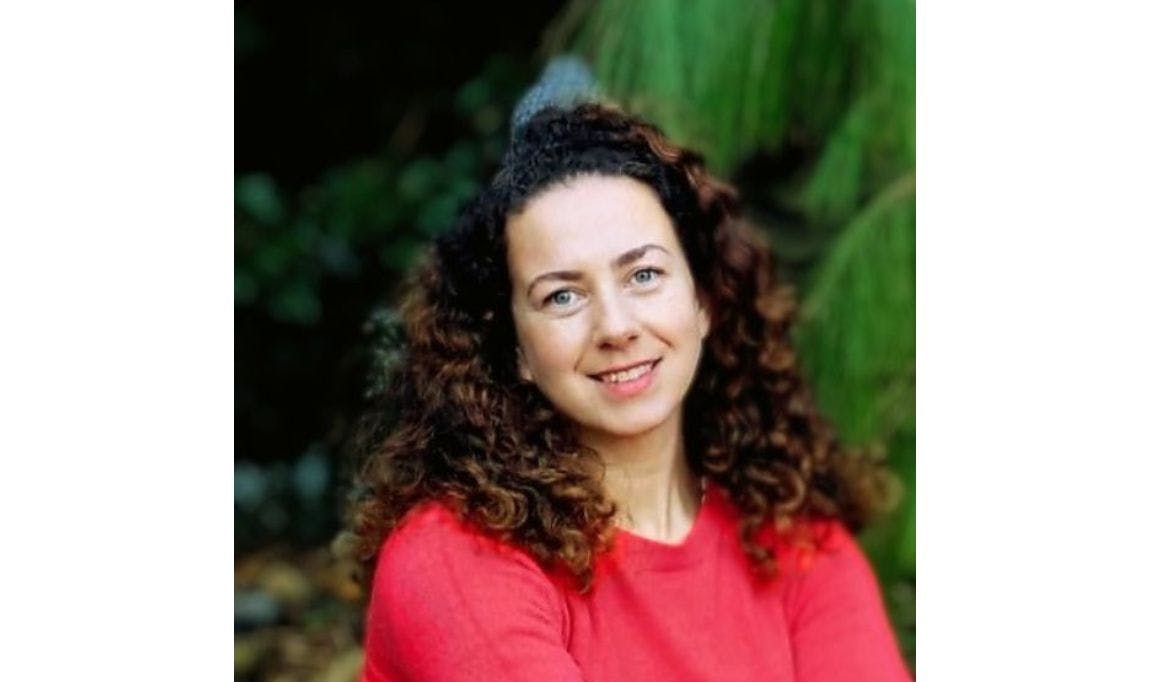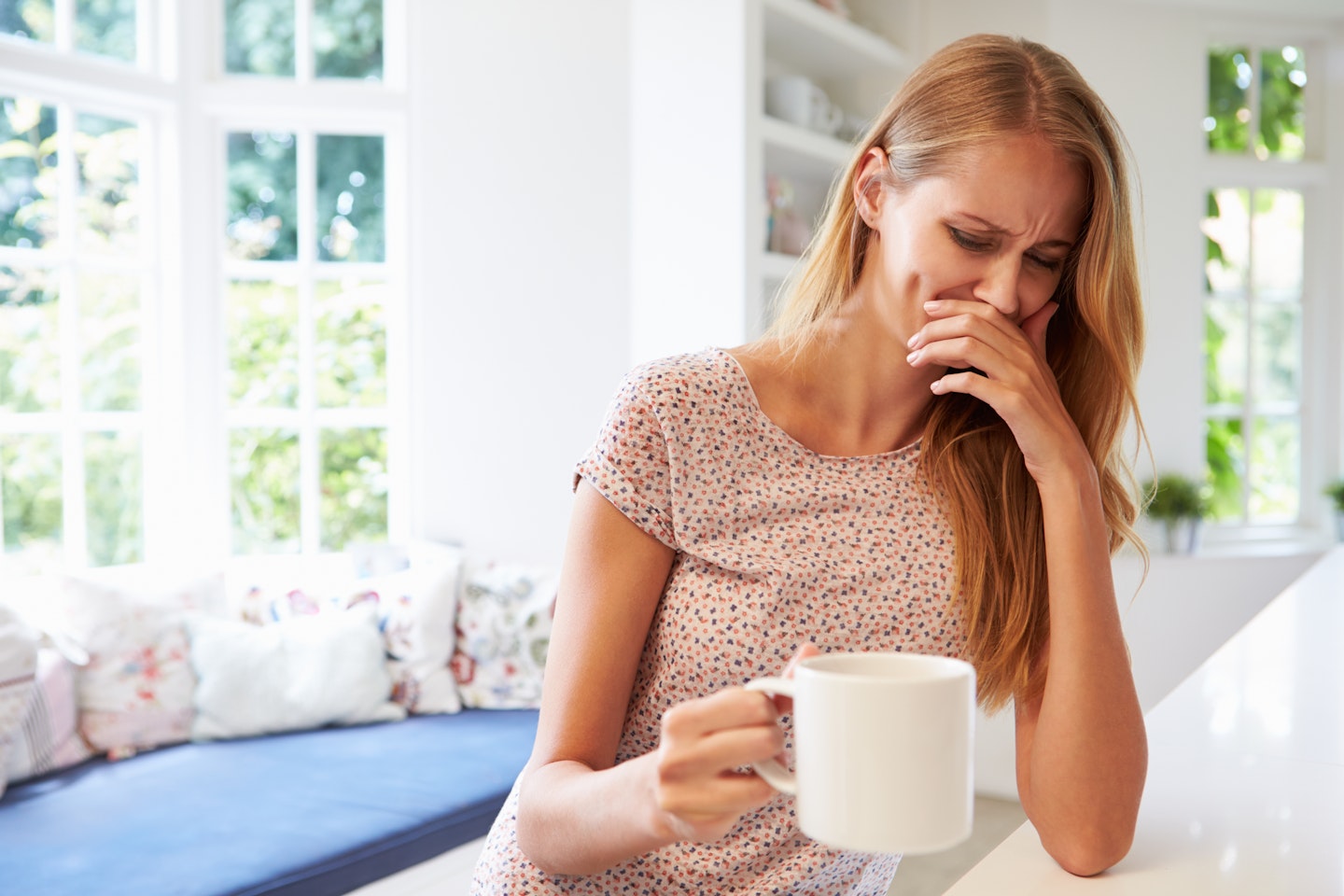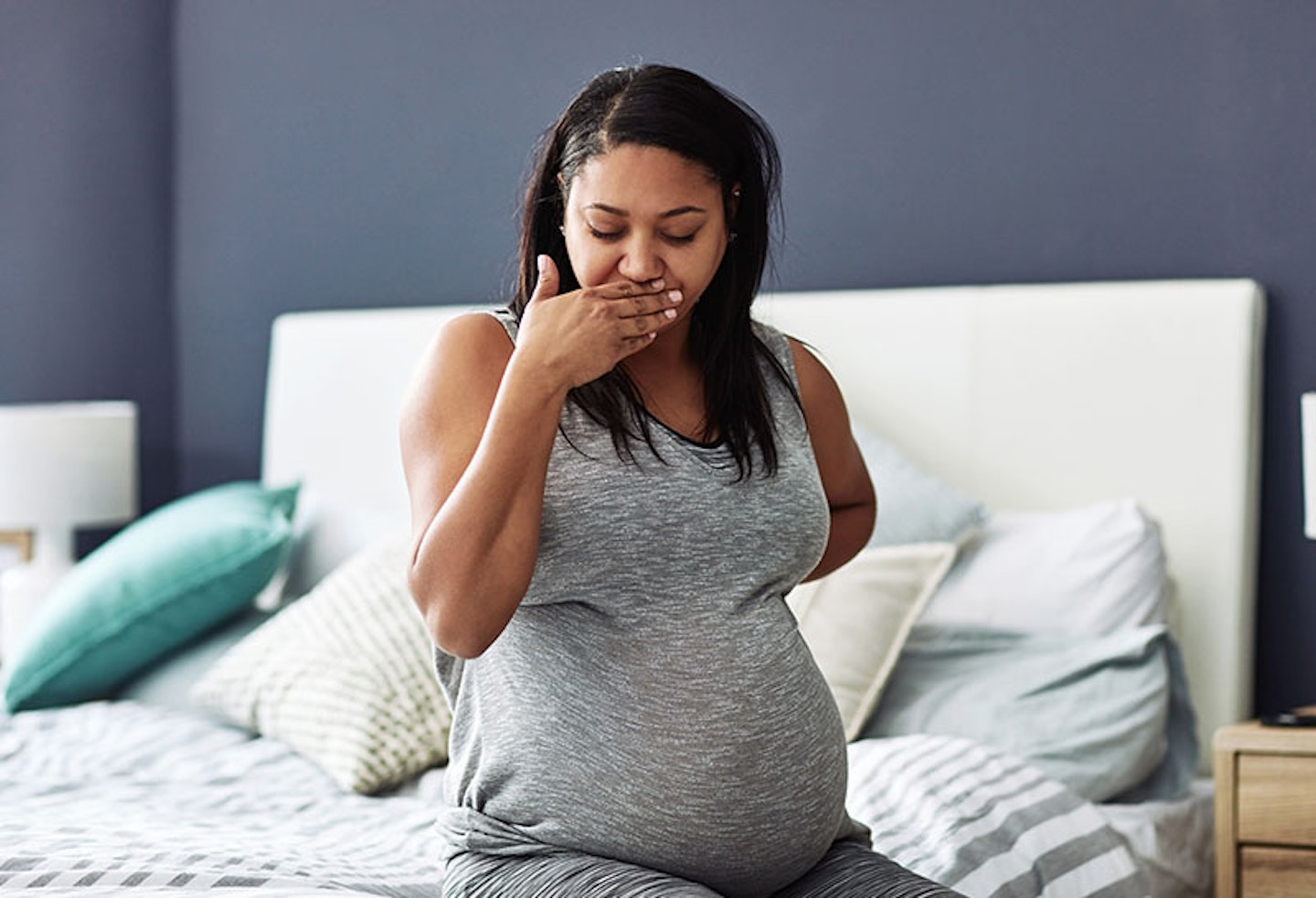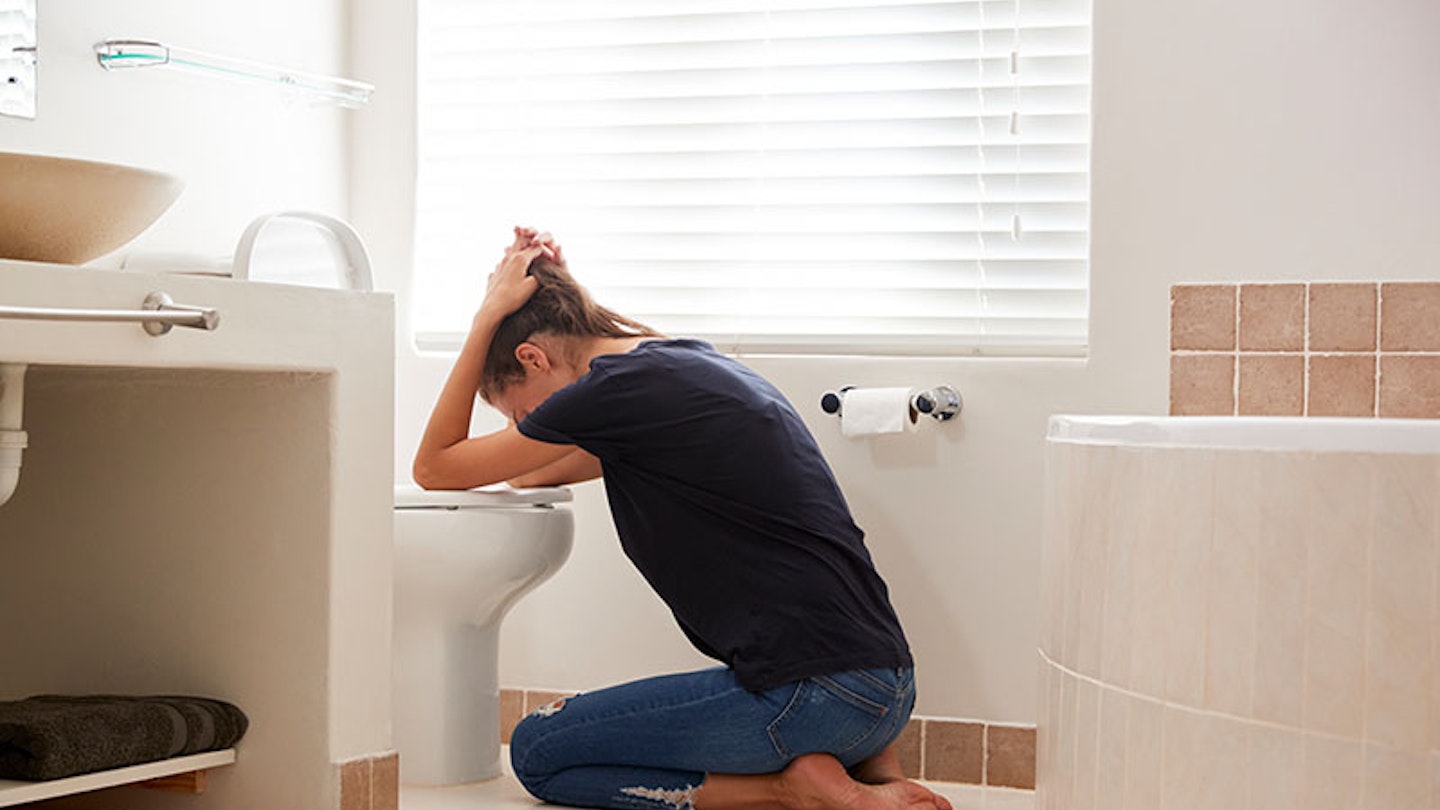
Medically Reviewed by: Dr Hazel Walklin MBBS, BSc(hons), MRCGP, IFMCP
Morning sickness is one of the pregnancy symptoms we've all heard about, and probably the one we're least looking forward to, but not all mums experience it in the same way, if at all. Nevertheless, if you're trying to conceive, you might be wondering how early morning sickness can start, to give you that first hint that you might be pregnant. Googling 'when does morning sickness start?' is likely to bring up a range of answers, so we've spoken to the expert, Dr Hazel Walklin MBBS, BSc, MRCGP, IFMCP to find out all you need to know about when morning sickness is likely to start and how long you can expect it to last.
When does morning sickness start in pregnancy?
According to the Royal College of Obstetricians and Gynaecologists, morning sickness usually starts between week 4 and week 7 of pregnancy and can range from nausea to vomiting and in more severe cases, hyperemesis gravidarum. If you can't keep food down and are suffering from severe vomiting, contact your doctor to discuss potential treatment.
If you're looking out for the start of morning sickness, you should keep an eye on the following symptoms:
• A nauseous feeling similar to car sickness or seasickness.
• Aversions to certain smells that seem very powerful, they can make you feel physically sick.
• Feelings of sickness can often be followed by hunger.
• Nausea after eating.
Contrary to what the name suggests, morning sickness can occur at any time of the day but pregnant women often find it's worse first thing in the morning before they've eaten. Finding a breakfast to help ease morning sickness can help.

Does morning sickness start earlier with twins?
While you're more likely to have it if you're pregnant with twins, morning sickness doesn't normally start earlier with twins. However, the increased hormone levels with twins does make it more likely that you'll have morning sickness and can mean it's more severe, so it can be an early sign that you carrying more than one baby.
When does morning sickness end?
According to the NHS, most women find their morning sickness calms down once they begin their second trimester, and for 9 out of 10 women morning sickness usually clears up by week 20 of their pregnancy. However, if you're continuing to experience sickness after this time, speak to your midwife or GP.
What does early morning sickness mean?
If you find you suffer from morning sickness before four weeks, this is normal. While morning sickness is unlikely to start at 1 week, some women suffer from nausea very early on during pregnancy although it is not usually accompanied by vomiting. At as early as two weeks pregnant, certain strong smells (like perfume or food) may trigger nausea. If you've had multiple pregnancies and previously experienced morning sickness, you may notice nausea as a symptom earlier than other women.
What does it mean if I don't have morning sickness?
The University of Cambridge notes that 7 in 10 women will suffer from morning sickness but if you don't, there's no need to worry. Some women may suffer from nausea without vomiting and some women don't experience any nausea or vomiting at all. As the study noted, it's thought to be due to a hormone produced by the foetus – a protein known as GDF15. How sick, if at all, the mother feels is potentially due in part to how much of the hormone is produced by the foetus and how much exposure the mother had to the hormone before becoming pregnant.

Morning sickness remedies recommended by real-mums
If you're here for morning sickness remedies, you're in the right place. We asked our #mumtribe community what helped their morning sickness and here are some of our favourite answers:
Katie Gleeson: "I swear by the seasick travel bands, they helped me on both my pregnancies, I recommend them to everyone."
Fiona Clewer: "I started with morning sickness at week 9 and was still being sick a couple of hours after having my baby boy and the only thing that ever made any difference (and only worked sometimes) was sipping ginger beer. Even water made me vomit."
Patrice McDonald: "Dry cream crackers helped...plus crystallised ginger (easier to cope with than raw ginger). I later asked the GP for anti-sickness tablets, but in the end they prescribed antacids which really helped (much better than just drinking Gaviscon by the bottle)!"
Rachel Train: "It’s trial and error. I had sickness with all my 3 pregnancies and I found eating plain food regularly helped me. Marmite sandwiches on white bread was my saviour from starvation, and plain baked potatoes, cream crackers and rich tea biscuits. Sucking on mints helped with nausea. And I found a tummy setting tea morning sickness tea that did actually help!"
Holly Ashton: "I was sick for months and nothing really helped. Even anti sickness tablets from the Drs! I tried all the tricks but the only thing that seemed to keep it at bay at all was eating a little and often. Including having biscuits and dry cornflakes by my bed so I could munch through the night too!"
Tanya Harrison: "I had morning sickness when we first moved into our house. Our first parcel to arrive was a giant box of 48 ham and mustard flavour crisps which my husband thought was a mistake! It was the only thing that would cure my morning sickness!"
Laura Davies: "Water from the fridge with chopped up lemons in it and those butterscotch sugar-free sweets you can get from Aldi. Lifesaving!"
About the expert
Dr Hazel Walklin MBBS, BSc(hons), MRCGP, IFMCP, also known as The Balance Medic, is an experienced NHS GP of over 8 years, and a certified Functional Medicine Practitioner with a special interest in women’s and children’s health. As a mother herself, she blends the science of conventional medicine with the whole-person approach of functional medicine to provide compassionate, evidence-informed care for mothers and babies.
About the author
Rebecca Lancaster is a Digital Writer for Mother&Baby, drawing on ten years of parenting her two children to help others navigating their own parenting journey. As a freelance writer, she spent ten years working with leading lifestyle brands, from travel companies to food and drink start-ups, and writing everything from hotel reviews to guides to the best British cheeses. She’s particularly interested in travel and introducing her children to the excitement of visiting new places, trying different foods (less successfully) and experiencing different cultures.
